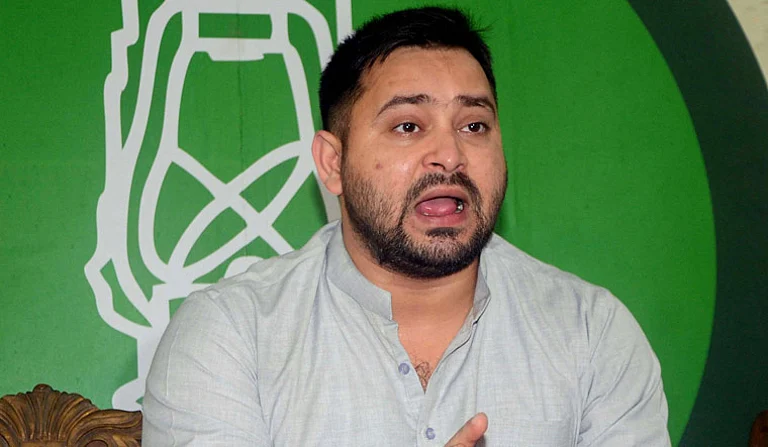Supreme Court notes possibility of mistakes in draft electoral roll.
Petitioners warn SIR could cause mass exclusions of marginalised.
Election Commission says errors can be fixed at the booth level.
Supreme Court: ECI To Correct 'Mistakes' In Bihar Draft Electoral Roll
Supreme Court flags possible errors in Bihar’s draft voter roll as petitioners warn of mass exclusions under the Special Intensive Revision process.
The Supreme Court on Tuesday stated that “mistakes” may have occurred while preparing the draft electoral roll of Bihar. The court pointed to the Election Commission of India’s (ECI) willingness to correct those mistakes, as petitioners reminded the court of its promise to “step in” if the Special Intensive Revision (SIR) led to “mass exclusion”.
The petitioners, who include opposition leaders from various states, and organisations such as the Association for Democratic Reforms (ADR), the People's Union for Civil Liberties (PUCL), and the National Federation for Indian Women (NFIW), have raised concerns that the SIR process allows arbitrary deletion of voters without adequate safeguards, potentially disenfranchising lakhs of citizens and undermining free and fair elections.
Senior Advocate Gopal Sankaranarayanan, appearing for the petitioners, said, "My Lords promised you would step in if there was a mass exclusion," when appearing before the bench of Justices Surya Kant and Joymalya Bagchi on the first day of hearings in the challenge to the SIR. “This has taken place. The draft electoral roll released on August 1 does not include 65 lakh individuals,” he said.
Senior Advocate Rakesh Dwivedi, appearing for the Election Commission of India, said errors were bound to occur “here and there". Saying it is a draft roll, he added, "It can be corrected by the Booth Level Officers.”
Senior Advocate Kapil Sibal, who led the arguments on the petitioners’ side, said, “In a small constituency, twelve people left out as dead were found alive.”
Justice Kant questioned Sibal about whether the petitioners desired a "roving inquiry" and at whose request, while advocate Dwivedi said that the petitioners were more eager to be an "obstruction" and engage in conjecture. "If anyone is truly upset, kindly provide us with a list of their names. We'll do something about it," Justice Kant told Sibal.
According to Sibal's arguments, a large proportion of Bihar's population lives in poverty and lacks documents required by the ECI to verify citizenship and get added to the draft voter list.
Also speaking on behalf of the petitioners, Senior Advocate Abhishek Manu Singhvi argued that several records would have been lost as a result of migration, floods and other circumstances commonplace in Bihar. According to him, the majority of people in Bihar do not have digital copies of their paperwork.
He said, “Determination of citizenship is not the role of ECI. If crores of people in Bihar are already on the electoral roll, the poll body cannot ask them to produce documents to prove their citizenship again. This amounts to presumptive exclusion.”
He also said, “ Under Bihar SIR, everyone [featuring on the voter list] after 2003 is presumptively treated as not on electoral rolls unless they show in the negative. This is a very serious thing. Public interest would be taken care of if they do a one-year exercise, after the elections ... [In earlier similar exercises] they had time. Today, they have done it in a few months. Is there any sanctity [to their findings]? Is there one good reason why they can't do it afterwards [after the upcoming Bihar Assembly election]?”
Only 3.05 per cent of Bihar's population, according to Sibal, possesses birth certificates, one of the 11 "indicative" documents that the ECI requires.
However, Justice Kant did not accept the argument, saying that Bihar is a part of India. Other states wouldn't have these documents if Bihar residents didn't. These documents attest to a person's status as a legitimate resident of a state. The onus will change to the ECI once you present the documents, he noted. He cautioned Sibal not to make "sweeping statements".
In addition, Justice Kant said that 87 per cent of Bihar had photo voter identification cards and Aadhaar cards. Although not definitive, they might serve as evidence of citizenship. According to the court, those who were listed on the Bihar electoral roll in 2003—the year of the last extensive revision of voter information—do not have to provide documentation in order to be listed on the current draft roll.
Since they are already listed on the 2003 electoral roll, an estimated 6.5 crore voters do not need to present any documentation, Dwivedi said.
However, when a brief revision of the Bihar electoral roll took place in January 2025, Justice Kant inquired why a SIR had become necessary all over again.
According to activist and politician Yogendra Yadav, who made an in-person appearance at the hearing, SIRs have proven ineffective everywhere they have been conducted. He said that typically a quarter of the population—mostly the poor and marginalised—is left out whenever the burden of inclusion in the electoral roll moves from the State to the people. Yadav said there is no way to compare the 2003 extensive modification of the Bihar voters' list with the present SIR. The latter occurred during the period when voting was conducted using computers.
"The Bihar SIR may be the largest disenfranchisement not just in India's history, but in any democracy in the world. This is not an issue of revision, but a tectonic shift in the burden [of proving citizenship] to the voters,” Yadav said.
The poll panel, according to advocate and public-interest activist Prashant Bhushan, has the precise number of people removed from the draft roster as well as the justifications for their removal, which include death, traceability, duplicate and permanent relocation within the state. It isn't disclosing the specifics, though. According to him, numerous enumeration forms of deleted individuals said that "BLOs have not recommended" their names on the voter list, but failed to provide a reason for these exclusions.
